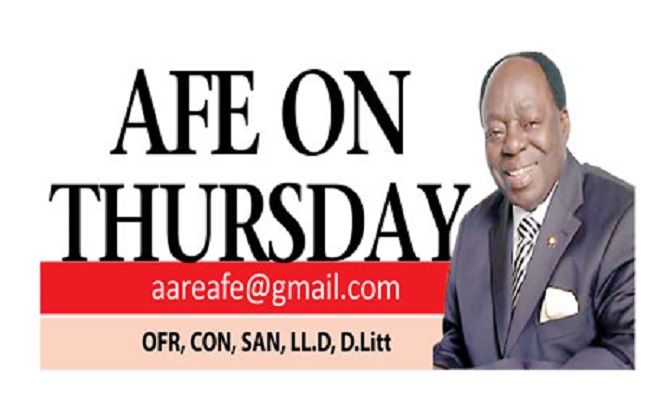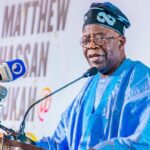The losers
THE shortcomings of the election underscore how failure to address a wide range of constitutional defects continue to yield the same result of disappointment and suppression of the voices and wills of the electorates at successive selection cycle. The real losers in the context of the election are the political actors that have missed the opportunities to put the nation of the path of true federalism.
- INEC: In a country reeling from economic hardships, INEC received more than N300 billion to conduct the 2023 elections. Expectations were therefore very high that in the light of the huge amount spent; the enactment of the Electoral Act of 2022 which introduced widescale reforms; and the progress made in digitizing voters registration process through the introduction of Permanent Voters’ Card (PVC) that this year’s election should be one of the most credible ever conducted in Nigeria. While INEC is widely commended for its introduction of the Bimodal Voter Accreditation System (BVAS) to reduce election manipulations and the menace of ghost voters, the criticisms that have trailed the overall deployment of BVAS have however been louder than the commendations. There were widespread concerns about malfunctions of the BVAS system in many locations, while the process of uploading the results also attracted significant discontent.
If the uncomplimentary assessment of the electoral process is anything to go by, INEC may have missed yet another great opportunity to conduct free, fair and credible elections that would inspire local and international confidence. Secondly, for a country that has had more than 20 years of experimented democratic experience, the abysmal voter turnout in the elections should be of great concern to INEC. Of the 93 million Nigerians that registered and were eligible to vote, only about 25 Million of them showed up to vote (less than 30 percent) which represents the lowest voter turnout rate in the country’s history of presidential elections.The implication is that in a country with a population of more than 200 million, the declared winner of the presidential election scored only about 8 million votes representing just about 4 percent of the country’s population. While the problem of decline in voters turnout can be traced to many factors, including concerns over insecurity and intimidation by agents and touts, a key factor is the lack of confidence in the electoral process. If there is any perception by the public that their votes may not eventually count, then the desire to turn out and vote becomes diminished.
Secondly, the delays in the arrival of voting materials, long queues and systemic bottlenecks associated with the electoral process is a key reason why several registered voters will give up voting. For example, there were reports of voters having to queue for more than seven hours in order to exercise their franchise, while little or no arrangements were made for voters with disabilities and older voters. These problems call for in-depth reevaluation and soul searching by INEC on how to enhance the ease of voting in Nigeria. Lack of active and broad-based public participation in the electoral process is a significant threat to democracy in Nigeria.
- True federalism: Nigeria’s search for true federalism has been a major loser in the recently concluded elections. The electoral process brought strongly back to the fore deep seated divisions on ethnic and religious grounds, moreso than any other election in Nigeria’s recent history.
First were debates on Muslim-Muslim presidential ticket which resulted in loud remonstrations and outflux by Northern Christians in the APC, followed by increasing resort to religious sentiments by several politicians throughout the campaign process. Furthermore, and more worrisome, is the alleged attacks on voters of Igbo extraction in Lagos, Rivers and other states. Ohanaeze Ndigbo consequently released a statement condemning alleged “Igbophobia” and the unprecedented attacks, intimidation and threats unleashed on Igbo during the elections. If anyone ever thought that Nigeria’s quest for true federalism and nationhood was on track, these deep-seated religious and ethnic divisions brought to the fore by the elections indeed show the frailties that remain is our elusive search for a united federation.
What these events clearly demonstrate is that while diversity of tribes and religion in a federal state can be a blessing, it must be backed by a strong and effective federal constitution in order to make it work. When the constitutional foundations of a federalist state are structurally weak, such a nation may continue to witness escalating insecurity and tensions before, during and after elections. Even though the 1999 Constitution declares Nigeria to be a federal, multi-ethnic and multi-religious state, Nigeria in reality operates as a unitary state with deep rooted ethnic and religious intolerance. Without true federalism in which states and regions have their own identity, security apparatus, and control over their natural resources, all within a united Nigeria, the deep-rooted mistrust across the country will continue to heat up the nation, making it remain a “pressure cooker” of insecurity, terrorism and extremism that the country has fast become over the last decade.
- The road ahead
The lessons of the recently concluded elections should lead us as a nation to embark upon a conscious process of reforms that will restore the pride of the country in the league of serious democratic and federal states. Without urgent and true restructuring, Nigeria’s search for free, fair and credible elections may remain elusive. The call for a true federal constitution is not a call for disunity or disintegration, rather it is a well-informed call for a speedy return to the confederation principles contained in the Independence Constitution which our regional leaders negotiated with the British between 1957 and 1959. The earlier we enact a new Federal Constitution, the sooner we can begin to witness economic recovery.
It is a true federal constitution that will address the lopsidedness of the 1999 Constitution in a comprehensive and holistic, rather than in a piecemeal manner at the whims of a few, while neglecting the overall yearnings of the Nigerian people that continually bear the brunt of increasing social, economic and infrastructural neglect and hardship.
It is a true federal constitution that will make the vote of the common citizen count. The current concentration of powers at the centre which has made politics so lucrative and attractive encourages politicians to do everything and anything to attain power. The politicians see attainment of power not as a means to an end but as the end in itself. They will bribe, corrupt, intimidate, coarse, browbeat and indeed resort to every trick in the book to be a Senator, Rep member, Governor, Minister, Commissioner, Local Government Chairman, Member of the House of Assembly and even Local Government Councilor. This has a direct effect on the quality of leadership available to the country. What we see is not a desperation to serve the Nigerian people, but a desperation to make a living by the political class, and a perpetuation of transactional leadership.It is only through a true federal constitution that transformational leaders can emerge at the state and sub-reginal levels and a true Nigeria nation can emerge from over the 300 nations in the country. It is a true Federal Constitution that will reduce overconcentration of power in the centre and reduce corruption, promote harmony and unity and make the country metamorphose into a nation.
As we reflect on the elections and set the agenda for the next four years in our democratic journey, now is an opportune time for all well-meaning Nigerians to seek the convocation of a Sovereign National Conference (SNC) to return Nigeria to true federalism.
The SNC should be an assembly of elected representatives of the Nigerian people, backed by an enabling law, with the mandate and power to fundamentally restructure the political, economic, social and constitutional future of the country. A SNC will not have any “no-go areas or non-negotiable issues”, rather it will have the broadest mandate to determine the political, economic, social, judicial, legislative and security structures of the Federation, which will include issues of state police, fiscal federalism; multi-religiosity; separation of powers, fundamental human rights; and fundamental objectives and directive principles governing the coming together of different parts of Nigeria as a Federation. The enabling law would ensure that the outcome of the SNC will receive the status of a draft constitutional reform bill which will be considered and passed by the National Assembly to produce a new constitution for the Nigerian people.
To ensure broad-based representation and efficiency, the SNC should be convened as follows:
- Two to three delegates per state, elected on zero party basis 2. Every ethnic group in Nigeria should be represented at the SNC 3. Representatives of accredited professional, religious and non-governmental bodies, who will be distinguished personalities with unimpeachable records. Such organisations will be proportionately represented, based on their numerical strength. 4. 50-50 representation for both women and men 5. At least 20 percent representation of youths in the SNC. Here I adopt the African Union’s definition of youth, which is “every person between the ages of 15 and 35 years” 6. The Principal Officers (Chair, Deputy Chair and Secretary) of the SNC to be elected internally by its members during the inaugural sessions of the body.
Furthermore, the bill convening the SNC should also establish a National Commission on Constitutional Restructuring (NCCR) as an independent, arm’s length and administrative agency which will have the mandate to provide administrative support and oversight for the process, including overseeing the convening of the SNC with assistance of the electoral body. The NCCR will also provide the required continuity that will ensure that the SNC’s report is fully implemented, irrespective of any change of government during the transitional phase. To ensure its independence, the NCCR should receive funding for its work from direct budgetary allocation and should not be under any government ministry.
AARE AFE BABALOLA, OFR, CON, SAN, LL.D (Lond.)






